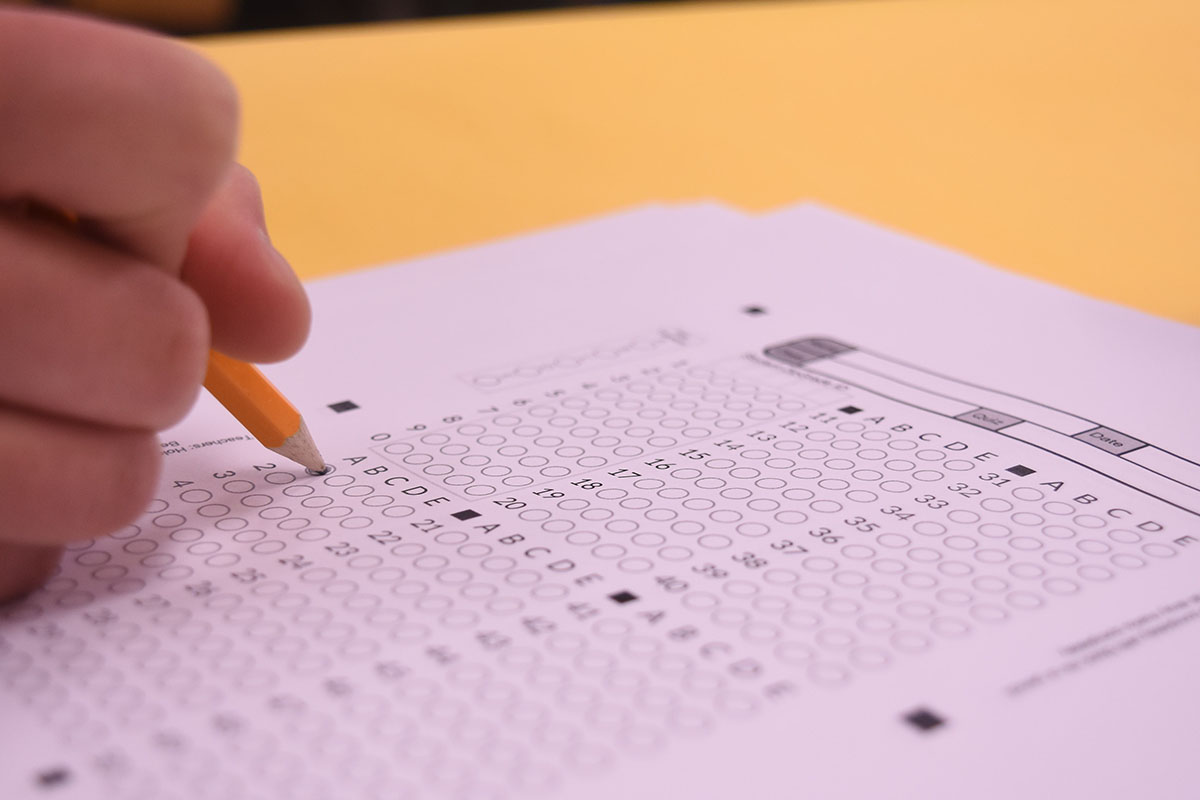Students gobble up extra credit points at school just as kids scarf down chocolate and candy. While extra credit at RBHS varies from teacher to teacher, students such as junior Drew Thomas especially likes extra credit because he receives free points.
Thomas said he received two extra credits to the test category in his precalculus class for bringing in a tissue box.
“I guess they didn’t have enough [tissue boxes],” Thomas said. “I mean I’ve thought about [the ethics of extra credit] but, you know, I got extra credit. [If a student didn’t have money to purchase something for extra credit,] that’s why [extra credit] would be bad.”
There is no official extra credit policy to prevent Thomas’ concerns at RBHS, principal Dr. Jennifer Rukstad said; however, she expects teachers to be reasonable. Dr. Rukstad said the school aims to get away from extra credit though she is aware that it is still occurring and trusts teachers to be thoughtful and fair.
“There’s not really a rule. When you say purchases, that’s interesting. [A tissue box as extra credit], that should not happen,” Dr. Rukstad said. “However, sometimes experiences are used as extra credit, so going to a play or those kind of things could be a cost, and so that’s a little bit different.”
French teacher Kristin Reed agrees with Dr. Rukstad’s approach to extra credit and does not want augmented grades. Reed likes grades to reflect what a student actually knows and is capable of, and therefore offers very minimal extra credit.
“[I give no more than] 10 points [of extra credit] per semester, again I do not want grades to be inflated,” Reed said. “It is imperative grades reflect knowledge and ability of a student, not effort or behavior.”
Despite the opposition towards extra credit, there is an alternative, Reed gives students optional assignments. She says they are a great opportunity to create a more solid base to one’s grade and allows some motivation for culturally appropriate assignments that many students would not choose to do on their own.
“If there are relevant things going on or assignments to encourage [or] push students I may assign them, [for example], participating in a culturally relevant food day, etc,” Reed said. “The end of the week raffle drawing are extra credit with a maximum of five points possible. The only other extra credit assignment I have offered in the past is the National French Exam. It takes a lot of time to prepare, it really increases one’s appreciation of the French language and it costs money. I feel as though the time and effort involved, as well as the benefit is worthy of extra credit points.”
While extra credit can be beneficial to students, Dr. Rukstad does not see it in future school years.
“I think if we were to change our grading system completely we might take extra credit out completely, but right now our grading system is still what it is,” Dr. Rukstad said. “I could see a scenario where extra credit would not be there [in the future].”
With only a year and a half left in high school, Thomas will most likely not see extra credit leave by the time he graduates. Thomas appreciates the extra credit he receives in classes, but thinks some restrictions should be necessary.
“I don’t think there should be a policy from classroom to classroom because ultimately all of the classes are different and teachers can have their own grading scale,” Thomas said. “As far as buying your grade, I’m sure there should be a policy for that.”
LATEST NEWS
- Stress, anxiety skyrocket as students prepare for upcoming AP tests
- RBHS holds successful night of percussion
- Not even water?
- Solar eclipse to pass through Missouri, April 8
- How CPS is organized: a guide
- City of Columbia to hold school board election April 2
- Youth Election Participants to assist in upcoming municipal election
- City of Columbia hosts first Community Engagement Session for McKinney Building, hopes to gain public insight on the structure’s future
- RBHS Track Team Opener at Battle Gallery
- March Mathness Photo Gallery





















































































